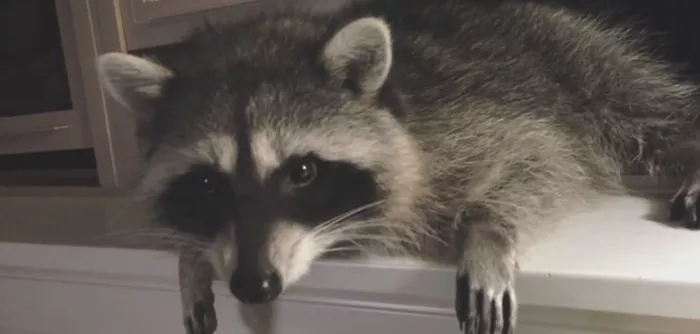Raccoons are clever, adaptable animals. They live in forests, cities, and suburbs. Many people see them near trash cans at night. Raccoons have strong paws and sharp claws. They use these to find food and defend themselves. Raccoons usually avoid fights. They prefer running away from danger. But they can become aggressive if cornered, sick, or protecting their young.
Do Raccoons See Cats as a Threat?
Raccoons do not usually hunt cats. Cats are not their natural prey. Raccoons eat fruits, insects, small rodents, and human leftovers. However, conflicts can happen.
Possible Reasons for Conflicts
Food Competition – Raccoons love cat food left outside. If a cat is near its food, a raccoon might push it away.
Territory Disputes – Both animals may fight over space, especially in urban areas.
Protecting Babies – A mother raccoon may attack if she thinks a cat is too close to her kits.
Rabies or Disease – Sick raccoons act unpredictably and may attack without reason.
Can a Raccoon Hurt a Cat?
Yes, raccoons can injure cats. They are larger and stronger than most domestic cats. Their claws and teeth can cause deep wounds. A fight could lead to infections or diseases.
How Cats Usually React
Most cats are cautious around raccoons. They may hiss, arch their backs, or run away. Some bold cats might try to fight, but this is risky.
Preventing Raccoon and Cat Fights
Keep Cat Food Indoors
Raccoons come for easy meals. Do not leave pet food outside overnight.
Secure Trash Cans
Use tight lids to stop raccoons from scavenging near your home.
Supervise Outdoor Cats
Let cats out only during the day. Raccoons are more active at night.
Vaccinate Your Cat
Rabies shots protect cats if a raccoon bites them.
Install Motion-Activated Lights
Bright lights scare raccoons away.
What to Do If a Raccoon Attacks Your Cat
Do Not Panic – Loud noises (clapping, shouting) may scare the raccoon off.
Separate Them Safely – Use a broom or water hose, but avoid getting too close.
Check for Injuries – Look for bites or scratches. Take your cat to the vet if hurt.
Report Aggressive Raccoons – Call animal control if a raccoon acts strangely (stumbling, foaming at the mouth).
Conclusion
Raccoons usually avoid cats, but fights can happen. Protect your pets by removing food sources and keeping them indoors at night. If an attack occurs, stay calm and act quickly. By understanding raccoon behavior, you can keep both wildlife and pets safe.
Related Topic:
























